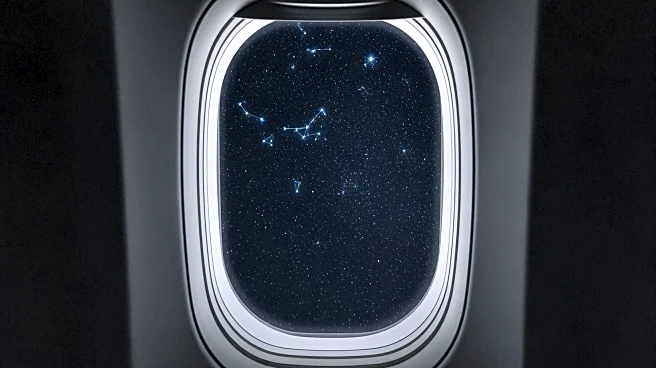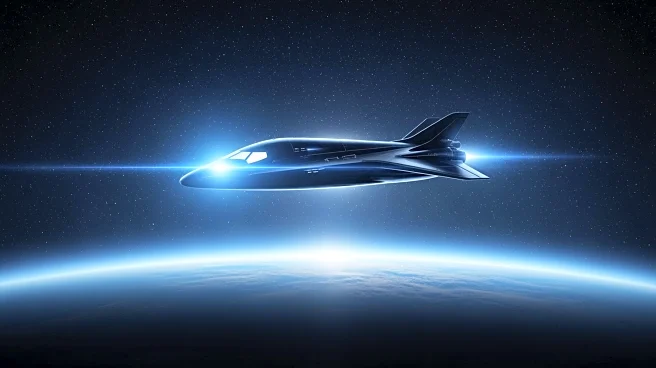What's Happening?
Virgin Atlantic has announced a partnership with Boeing to upgrade the connectivity of its Boeing 787 Dreamliner fleet. The collaboration will implement modifications to enhance onboard internet service, providing passengers with high-speed, streaming-quality
Wi-Fi. This upgrade is facilitated by the integration of Starlink's next-generation connectivity, which promises low latency and super high-speed internet, surpassing typical ground-based experiences. The modifications include the installation of a new antenna fairing designed to accommodate Electronically Steered Phased Array (ESA) antennas, supported by Boeing's Aerodynamic Shroud. This setup will enable multi-orbit connectivity, including Low Earth Orbit (LEO) connections. Virgin Atlantic's Chief Customer and Operating Officer, Corneel Koster, emphasized the importance of this upgrade in creating a 'home away from home' experience for passengers, enhancing their ability to stay connected while flying.
Why It's Important?
The partnership between Virgin Atlantic and Boeing to enhance in-flight connectivity is significant for several reasons. Firstly, it represents a major advancement in passenger experience, offering internet speeds that rival or exceed those available on the ground. This could set a new standard for in-flight services, potentially influencing other airlines to adopt similar technologies. Additionally, the use of Starlink's satellite technology highlights the growing importance of satellite internet in aviation, which could lead to more widespread adoption across the industry. For Virgin Atlantic, this move strengthens its position as a leader in customer service and innovation, potentially attracting more passengers seeking reliable connectivity during flights. Furthermore, Boeing's involvement underscores its commitment to advancing aerospace technology and providing solutions that enhance airline operations.
What's Next?
As Virgin Atlantic implements these connectivity upgrades, passengers can expect improved internet services on their flights, enhancing their overall travel experience. The airline's commitment to innovation and customer satisfaction may lead to further technological advancements in the future. Additionally, the success of this partnership could encourage other airlines to explore similar upgrades, potentially leading to broader industry changes in in-flight connectivity standards. Boeing's role in this initiative may also pave the way for more collaborations with airlines seeking to enhance their technological capabilities. As the aviation industry continues to evolve, the integration of advanced satellite technology could become a key factor in competitive differentiation among airlines.
Beyond the Headlines
The integration of Starlink's satellite technology into Virgin Atlantic's fleet not only improves passenger experience but also reflects broader trends in the aviation industry towards sustainability and efficiency. Virgin Atlantic's commitment to Net Zero by 2050 and its efforts to operate a fuel-efficient fleet align with the technological advancements in connectivity, showcasing a holistic approach to innovation. The use of advanced satellite technology could also have implications for global connectivity, potentially reducing the digital divide by providing high-speed internet access in remote areas. As airlines continue to prioritize passenger experience and environmental impact, collaborations like this may become increasingly common, driving industry-wide changes.














